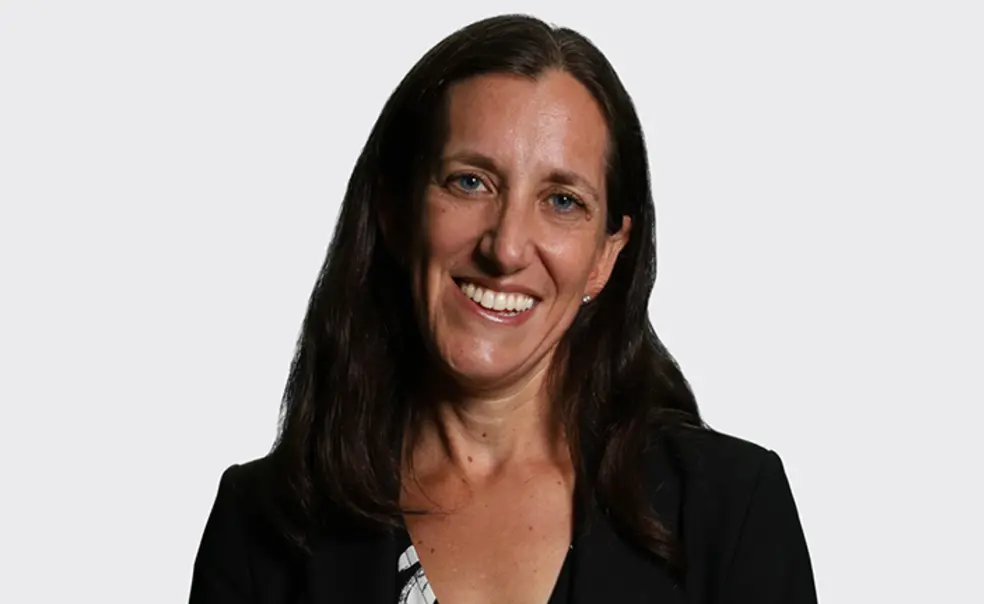Attorney Sandy Musumeci ’94 Helped Win a Wrongful Conviction Suit
‘You’re not doing anybody any good if you’re prosecuting the wrong person’
After spending more than two decades in prison for a double murder he didn’t commit, Eddie Bolden learned last month that a federal jury was ordering the city of Chicago to pay him a whopping $25 million as compensation. The verdict is believed to represent the highest award in a wrongful conviction case in Chicago, according to the Associated Press.
As the judge read the decision, Bolden started to quietly sob, recalls Sandy Musumeci Foster ’94, a member of Bolden’s legal team.
“We all started sobbing,” says Musumeci, who was sitting beside Bolden at the time. “It was overwhelming for me; I can’t imagine what it was like for Eddie.”
Long before Bolden’s trial, Musumeci had made something of a career out of verifying police investigations.
After discovering a calling for public service at what was then known as Princeton’s Woodrow Wilson School of Public and International Affairs, Musumeci went on to spend more than seven years as a Manhattan prosecutor. She later helped start the Office of the Inspector General for the New York City Police Department.
Musumeci recalls the “ethos” of the Manhattan prosecutor’s office under former District Attorney Robert Morganthau. It was to “do justice, not get convictions.”
“You’re not doing anybody any good if you’re prosecuting the wrong person,” says Musumeci, who was encouraged to dig into the cases that the police presented to her. She would talk to witnesses herself, go to crime scenes, and always keep an open mind about what had happened.
In 2017, Musumeci joined Riley Safer Holmes & Cancila, which had just filed Bolden’s wrongful conviction civil suit. Given Musumeci’s experience, this became her first assignment.
Musumeci got to know Bolden at first via audio recordings of his phone calls from prison. On the recordings she heard a man desperately trying to be a father to his three children, who were just toddlers when he was first incarcerated. She heard him give them tips, as they grew up, on shooting a basketball and on how to negotiate with their coach for more playing time.
It didn’t take long for Musumeci to become convinced of Bolden’s innocence.
“The evidence on paper was thin as could be,” Musumeci says.
One January evening in 1994, Bolden was in a restaurant owned by the father of a friend who dealt drugs when he saw a tussle outside. A man barged in saying he’d been shot, says Musumeci. Two others had been shot as well. Those two men died.
Bolden was almost immediately fingered as the top suspect in what was an apparent drug-deal-gone-wrong because his friend was the alleged mastermind behind the murders.
But it was Bolden who called 911, says Musumeci, adding that the recording of Bolden’s 911 call was never found because detectives made no effort to preserve or locate the 911 calls from the shooting.
Several customers had seen Bolden playing Pac-Man inside the restaurant at the time of the shootings. In his original 1996 trial, Bolden’s lawyer never called them to the stand. That oversight along with other errors led an Illinois appellate court to rule in 2014 that Bolden had made “a substantial showing” that his trial lawyer had been ineffective. And never mind that the man who barged into the restaurant gave a description of the shooter that didn’t much resemble Bolden at all, Musumeci notes. That composite sketch was disregarded.
Bolden was freed from prison in 2016, and a Cook County judge even went so far as to issue him a certificate of innocence. But in their defense, the detectives that Bolden sued along with the city of Chicago maintained that they still thought Bolden was guilty of the murders.
“So for a jury to say, ‘No, we believe you. You’re innocent and these police officers maliciously prosecuted you and violated your civil rights,’ it was overwhelming,” Musumeci says.












No responses yet